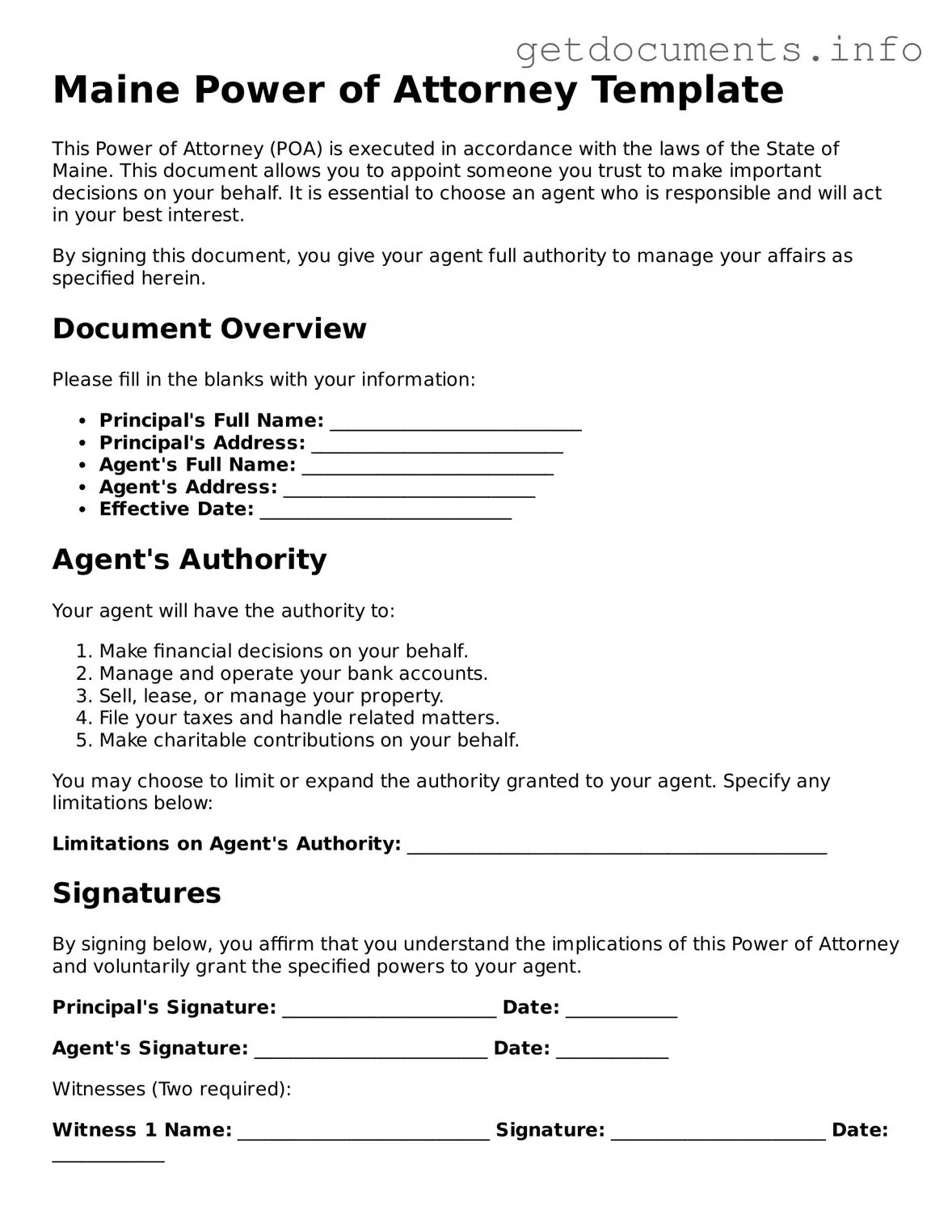Free Power of Attorney Template for Maine
A Power of Attorney form in Maine is a legal document that allows one person to grant another the authority to make decisions on their behalf. This can include financial matters, healthcare decisions, or other important choices. If you need to fill out this form, click the button below to get started.
Access Power of Attorney Editor

Free Power of Attorney Template for Maine
Access Power of Attorney Editor
Got places to be? Complete the form fast
Fill out Power of Attorney online and avoid printing or scanning.
Access Power of Attorney Editor
or
⇩ PDF File
